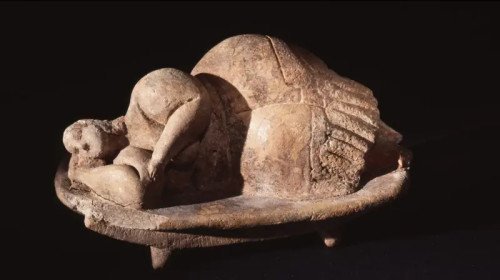Why Do We Sleep in Beds? A Strange History Spanning Centuries
the Ancient Art of Sleeping in Beds
Why did this habit exist?
In the wilds of Skail Bay on the west coast of Scotland’s Orkney Islands lies the ancient village of Skara Brae. This mystical maze of green mounds houses with large single rooms surrounded by thick walls topped with grass and linked by covered stone passages—was abandoned around 4500 years ago. Inside each house however, is something that’s familiar to modern eyes: beds
Most houses in Skara Brae up in the far north of Scotland follow the same designa 40 square metre room with a central hearth and prehistoric furniture. Alongside storage boxes and dressing tables with shelves, there are two rectangular containers, about the length of a human. Like most things on this treeless island, these prehistoric beds are made of cold, hard stone. But because of their long headboards and raised sides, they look like they could be from the 21st century. Apart from the ancient carvings on some and the occasional human skeleton beneath—these beds could almost be yours
humans have been making beds for hundreds of thousands of years In their book “What We Did in Bed: A Horizontal History University of california anthropologist brian Fagan and archaeologist Nadia Durrani chart the history of beds from the very beginning. for most of human existence sleeping spaces were thought to be rich piles of carefully layered foliage covered with soft, insect resistant leaves. It was from these humble beginnings that the first bed frames began to emerge
over the centuries beds have evolved from leaf piles to the complex structures we have today This evolution reflects not only changes in material and design but also changes in cultural practice and technology
 English
English
 Español
Español
 Chinese
Chinese
 français
français
 português
português
 Italian
Italian
 Russian
Russian
 Czech
Czech
 Deutsch
Deutsch
 Japanese
Japanese









